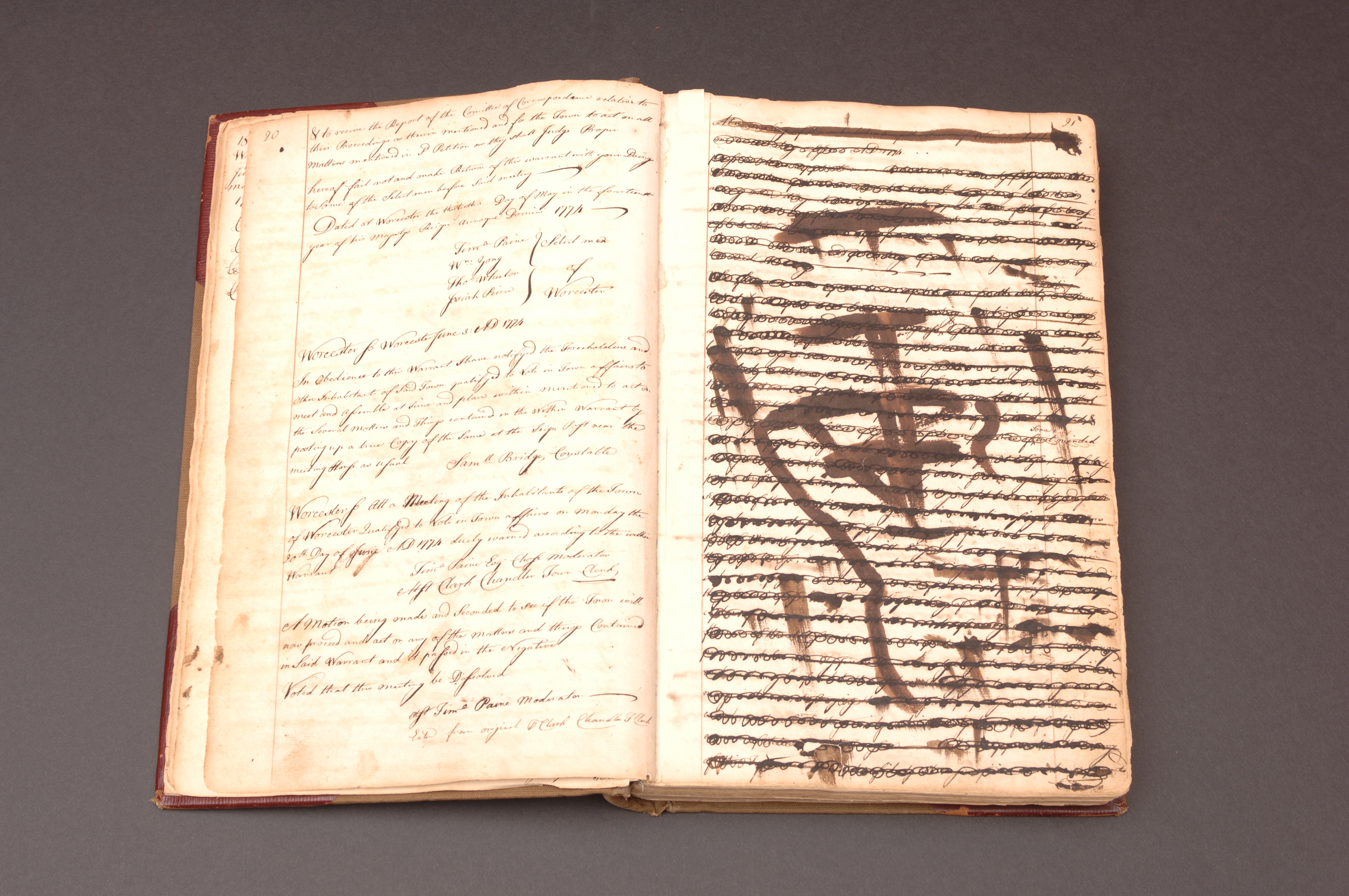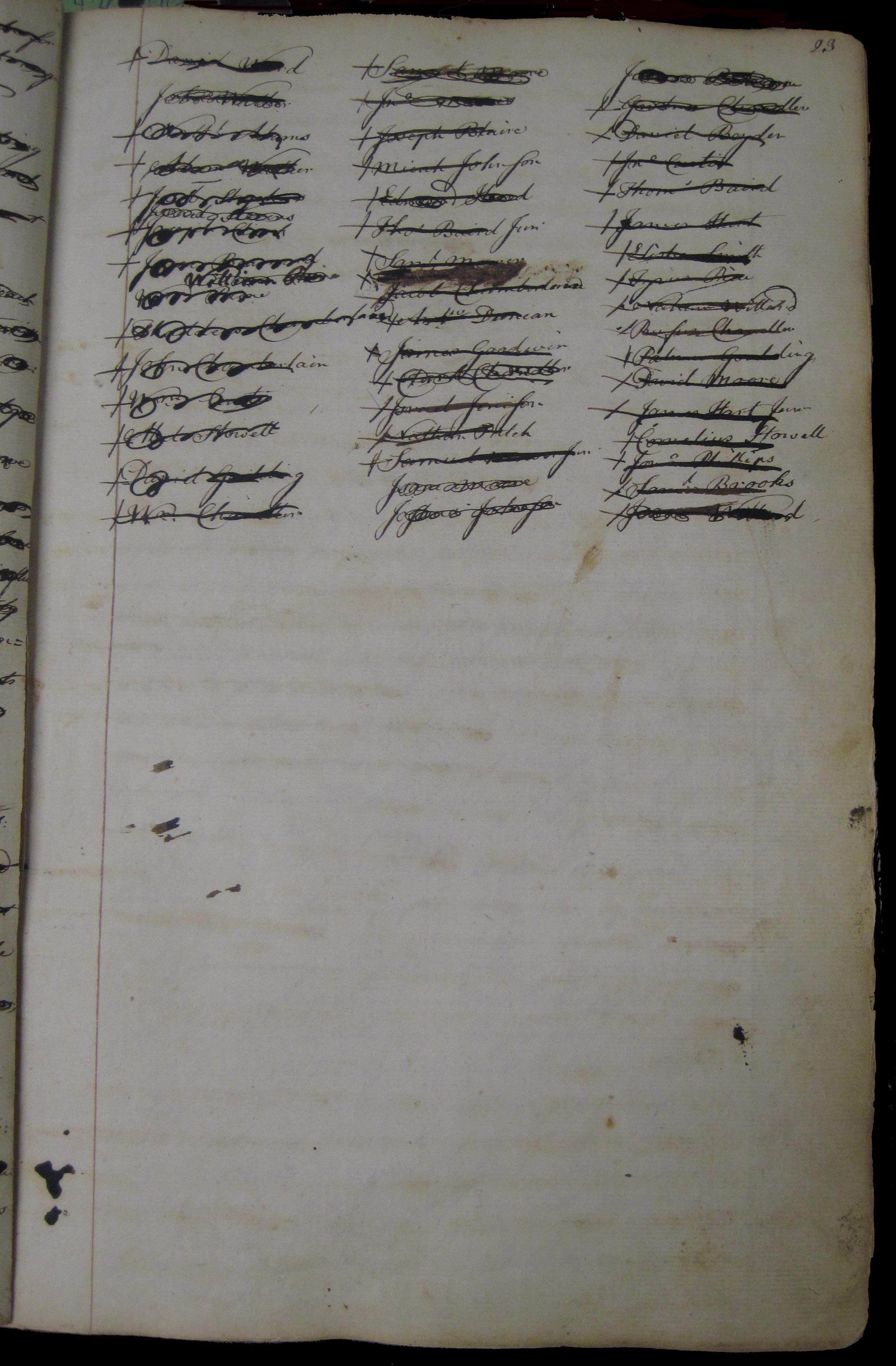Worcester’s “Ink Page”
On June 20, 1774, fifty-two Tories from Worcester entered in the official Town Records a “Protest” against their fellow townsmen who were resisting British imperial policies, calling their opponents “evil-minded and ill-disposed persons, who, under the disguise of patriotism, and falsely styling themselves the friends of liberty, …intend to reduce all things to a state of tumult, discord and confusion.” These self-styled patriots, the Protestors said, were “neglecting their own proper business and occupation, in which they ought to be employed for the support of their families, spending their time in discoursing of matters they do not understand.”
Two months later, however, Worcester patriots had taken such command of the town that they forced the 52 “Protestors” to "beg forgiveness" in a formal recantation at the town meeting. But that alone would not suffice. They then forced each of the Protestors, one at a time, to strike a line through his signature at the bottom of the Protest, which the town clerk, Clark Chandler - son of the town's most prominent citizen over the past decades, John Chandler IV - had entered in the official journal.
Then, unhappy with even the appearance of dissent, the patriots ordered the clerk to "obliterate, erase, or otherwise deface" the Protest from the record. Left with no other option, Chandler inked his pen and drew it across the Protest, line by line, in full public view.
But even that would not suffice. A few words could still be deciphered in the record book, the patriots claimed, so they made him do it again - this time with continuous loops of tight spirals that rendered the Protest unintelligible.
Certainly that should have ended the matter, but it didn't. We do not know exactly what triggered the last dramatic humiliation, but we do know that in full view of the town meeting, Worcester's town clerk was forced to dip his own fingers in a well of ink and drag them over the first page of the Protest. The short, irregular changes of direction in the defacements on this document suggest that Chandler's hand was forced.
Most primary source evidence of revolutionary intimidation is in a sense indirect: one person’s account of this event or that. Here, though, we actually see the evidence, like shriveled flesh from tarring and feathering. Rarely do we find a source that tells such a story.
Reproduced here are Volume 4, pages 21 and 23, of the Worcester Town Record, August 22, 1774.

